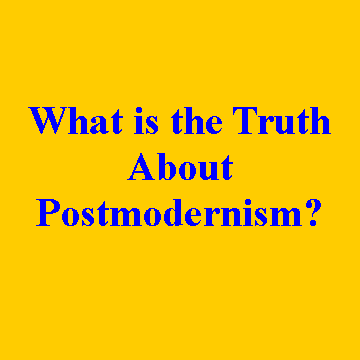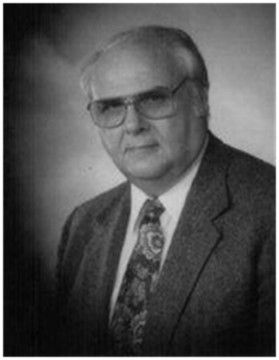|
Ecclesiastes 1:9-10. The thing that hath been, it is the that which shall be; and that which is done is that which shall be done: and there is not new thing under the sun. Is there anything whereof it may be said, Se, this is new? It hath been already of old time, which was before us” (KJV).
I. Introduction. According to “emerging church” leaders, we now live in a postmodern world. A. The dictionary defines “postmodern” this way: “pertaining to any of various movements in architecture, the arts, and literature developing in the late 20th century in reaction to the precepts and austere forms of modernism and characterized by the use of historical and vernacular style elements and often fantasy, decoration, and complexity.” B. Proponents of postmodern ministry believe that the modern culture, which began with the Age of Enlightenment has recently been completely replaced by a world view which is postmodern. 1. These proponents insist that most evangelical churches are hindered by being caught up in the modern era. 2. They will only be successful by moving into a postmodern model. 3. Dan Kimball, an emergent writer, said in his book The Emerging Church, “In a post- Christian world, pluralism is the norm. Buddhism, Wicca, Christianity, Islam, Hinduism, or an eclectic blend—are all part of the soil of this new paradigm.” C. From Adam’s day to ours, a battle has waged between man’s way of doing things and God’s. 1. Proverbs 14:12, “There is a way which seemeth right unto a man, but the end thereof are the ways of death” (KJV). 2. Permit me to make this observation, a. “Rebellion is always due to one thing—rejecting God’s Word because our way appeals to us so much more than God’s.” b. It is my opinion that this is precisely what the emerging church movement and postmodernism are espousing. c. When we embrace the philosophies of men rather than the inspired Word of God, we are led astray into darkness.
II. Here are two distinguishing characteristics of this dangerous philosophy. A. The “salvation message” of the postmodernist and emergent is not found in the proclama- tion of the Word of God, but rather in dialogue, not in presenting the truth, but in discussion of ideas. 1. Because this “new church model” is always searching, it never finds because it does not accept that there are any absolutes. a. 2 Timothy 3:7, “Ever learning, and never able to come to the knowledge of the truth” (KJV). b. In their endless dialogue, they never find the truth because truth is relative and they don’t use the definite article with “truth,” as in “the truth”; there are only “truths.” 2. There is a paradigm shift. a. Webster defines paradigm as “a philosophical or theoretical framework of any kind.” b. Postmoderns and emergents embrace the view that our present world requires a new way of viewing our changing world from a new perspective. c. Peter Drucker, Leith Anderson (who presented a proposal to our General Assembly a number of years ago concerning restructuring our general ministries), and Doug Pagitt were in the vanguard of these proponents. B. Their premise is that we must shift away from viewing the Bible as in and of itself authorative. 1. There are other factors, such as culture, ethnicity, gender, history, that must be taken into consideration; and with these factors, the message of the Bible must be adjusted to fit our times. 2. “Contextual theology” is a concept introduced to postmodernism by Doug Pagitt. a. Contextual theology says in effect, “Don’t use the Bible as a means of theology or measuring rod of truth and standards by which to live. Rather than have the Bible mold the Christian’s life, let the Christian’s life mold the Bible.” b. That is what Pagitt calls “putting words around people’s experiences.” 3. Because of this paradigm shift, the postmodern has to move away from the Bible teaching and proclamation to a dialectic approach. a. This removes responsibility from pastors and teachers to preach the truth of revealed Biblical doctrine to simply discuss and value the individual’s opinion. b. This discussion comes to a consensus of what they think the Bible is saying. c. This process moves from divine revelation to human experience, which is the essence of postmodernism.
III. Conclusion. This theological shift challenges the premise of the Sixteenth Century Reformation, suggesting that unity and works are more important than the Gospel or the blood shed upon the cross. The rally cry of the reformers of that Protestant Reformation was solo scriptura, or Scripture alone. That was truth then—and it is still truth today! A. But the postmodern and emergent say we must not limit ourselves to Scripture, but see God outside of the box. Rick Warren, a chief spokesperson for modernism said in an interview with Don Kuo, “I am looking for a second reformation. The first reformation of the church 500 years ago was about beliefs. This one is going to be about behavior. The first one was about creeds. This is going to be about deeds. It is not going to be about what does the church believe, but about what is the church doing.” B. Listen, brothers and sisters, a reformation that gives more credence to works and deeds than it does to beliefs and doctrine is wrong from its foundation. 1. A faith not based on the Word is not Biblical faith, and therefore cannot be the Christian faith. 2. While reaching today’s generation for the cause of Christ is something every Christian ought to pursue, we must never forget that Christ challenged us to follow Him and be obedient to His Word. 3. Romans 12:2, “And be not conformed to this world: but be ye transformed by the renewing of your mind, that ye may prove what is that good, and acceptable, and perfect, will of God” (KJV).
|


